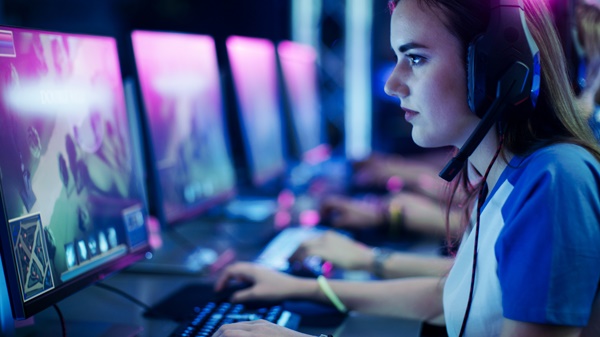
“Mom, Dad. I have decided that I want to become a professional gamer.”
Is it really as bad as it sounds? I mean, does it spell out “homeless” and “no career” for your child?
No it doesn’t.
And simply put, it is going to be the future of the way things are done. Even today I hang out with people that don’t have “real” jobs. They are social media experts, YouTubers or influencers. These options weren’t given to me when I was at school as possible career paths or ways to make money, let alone playing games for a living. These options were simply not available.
So, you have gotten past the shock of your child telling you that they want to play games for a living and immediately you start to think, “How”?
But how do Esports work?
Let’s kick off with the basics, starting with Multi Gaming Organisations (or MGOs, as we know them). These are or should be registered businesses that exist for the sole purpose of running Esports teams. They have a management team comprising owners, managers, a coach, psychologists, nutritionists, as well as fitness trainers. Internationally, and now locally, players are starting to be signed into contracts and are paid salaries to play competitive gaming by these MGOs.
As the Springbok rugby players or Protea cricket team are managed by a group of people, so are Esports teams. The bigger teams in South Africa are very well organised and have people working tirelessly behind the scenes to ensure that their players are happy and looked after. Ensuring that their players are in the places they need to be when they need to be there, whether by flying them around the world or just getting them from their hotel to the event they are competing in. They ensure their players are looked after regarding food and any other amenities that are required for them to do what they do best.
It takes lots of hours, hard work and commitment
This isn’t just a walk in the park. The same way your child wouldn’t wake up and say, “Take me to the Springbok training camp, I want to be a Springbok rugby player today.” That wouldn’t happen in competitive Esports either. A lot of work and dedication is required, as well as the right tools for the job.
Immediately you start to think of the cost for a computer and all the peripherals – keyboards, mouses (yup, that’s the correct way to say it) and headphones – and start to think, “Whoa, that stuff is expensive!” Well, anything nowadays relating to sport is expensive. Golf clubs, coaching lessons, football boots... the list goes on. This isn’t to say that gaming is one of the cheaper sports, but you can make it work at a really reasonable rate.
Okay, they’ve got the tools, they’ve got the team, now what?
Well this is where the hard work comes in because there are a lot of teams and players out there with the same idea in mind. As any sport it does require time, commitment and dedication to make anything happen. I am not talking about putting unhealthy amounts of time into this. As with any normal job, most professional teams will put in anywhere between 8 to 10 hours of gaming and strategy sessions in a day. They are also very sociable and aren’t recluses hiding in their bedrooms for 18 hours a day.
Where to start
Organisations like Matrix Warehouse and Mettlestate are the people now creating those opportunities for teams and players to be noticed and recognised. The Matrix Maverick Challenge, for example, is one of those opportunities. Amateur teams get the chance to compete against similarly skilled teams and have those games streamed to the world – the same way the top professional teams in the country are fortunate to have.
This now creates the platform for teams or players to be noticed and given a chance at the bigger competitions or teams. These kinds of competitions are what’s needed, and they need to happen more and more in South Africa for us to be able to create the space for the newer players and teams to come through and shine.
Yes, getting a gaming PC (or “rig” as most gamers like to refer to them) can be quite costly, but this is where the beauty of these kinds of tournaments come in. The winners of the Matrix Maverick Challenge get themselves R50 000 worth of hardware vouchers, meaning we now get into a space where these rigs start to pay for themselves and your days of funding these costly gaming rigs can come to an end.
Wanting to become a professional gamer is a real thing and not something to be scoffed at. There is more than just gaming in Esports, and a plethora of careers to be had in Esports. The money is there, but as in ANY career, it takes hard work and dedication.
South African blogger Tech Girl is deeply invested in the Esports scene in South Africa. In an article called "Player contracts, salaries and professionalism in South African Esports", she talks about how serious this career path is. It's certainly not one to dismiss.
So if your child comes to you one day and says, “I want to become a professional gamer,” just stop, think and consider – maybe.
Maybe there is something here.
How would you respond if your kid wanted to be a professional gamer? Tell us your thoughts on these new types of career paths and we could publish them. Send your email to chatback@parent24.com.




 Publications
Publications
 Partners
Partners










